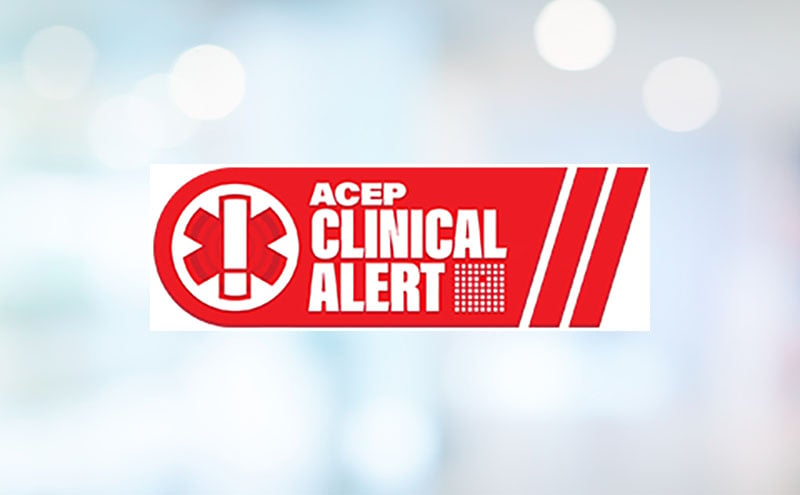UPDATE Oct. 9 - In reaction to the temporary closure of the North Carolina Baxter International facility, ASPR TRACIE has developed a new tipsheet- Intravenous Fluid Shortage Strategies, which contains information that can help health care professionals modify traditional practices and conserve IV fluids.
In the wake of Hurricane Helene, the Baxter International factory in North Carolina was flooded and shut down, preventing development and distribution of intravenous fluids around the country.
The facility is one of the largest suppliers of IV fluids, the Food and Drug Administration has said. And unfortunately, Baxter said the company does not have a timeline for when the factory may be back up and running, but it could be at least several months.
The American Society of Health-System Pharmacists (ASHP) issued a drug shortage alert for 0.9% Sodium Chloride Irrigation on Oct. 4.
Because of the large amount of IV fluids used in the emergency department, ACEP is encouraging our members to help conserve the supply and work with your hospitals to establish protocols for reserving these IV fluids for the most necessary use cases.
Some alternatives to using standard IV fluids include:
- Using a saline/heparin lock (vascular access) instead of connecting the IV to fluids, especially if the patient does not need hydration.
- Considering oral hydration instead of IV fluids for mild to moderate dehydration (A sample Pediatric Oral Rehydration Therapy Pathway from the UNC Department of Pediatrics).
- When appropriate, using anti-emetics in addition to oral rehydration.
- Using tap water instead of IV fluids or bottled saline for wound irrigation.
ASHP also offers some other options for IV fluid conservation strategies.
Addressing drug shortages remains one of ACEP’s top advocacy priorities. In addition to our efforts that led to the creation of an FDA drug shortages task force in 2018, we recently responded to a Senate Finance Committee RFI on drug shortages and joined a similar letter with several EMS organizations about shortage impacts on EMS agencies, and efforts to address drug shortages have been a central piece of our advocacy on the reauthorization of the Pandemic and All-Hazards Preparedness Act (PAHPA).
Specific to the Hurricane Helene response, ACEP is joining a sign-on letter to the FDA currently being circulated by the Society of Critical Care Medicine (SCCM), asking for the formal establishment of clear communications between manufacturers, distributors, and health care facilities to update supply availability and recovery timelines; identify/prioritize production of critical medications affected by the plant's closure to maintain health care operations; and, encourage/assist manufacturers in exploring alternative production sites or methods to compensate for the loss from the Baxter plant.
ACEP is also in communications with the American Society of Anesthesiologists (with whom ACEP has partnered for many years on drug shortage related efforts), as well as the ASHP, which is also tracking the issue and its impacts.
RELATED: ASPR has activated the Emergency Prescription Assistance Program (EPAP) for certain zip codes in North Carolina and Tennessee to help uninsured residents replace prescription medicines or certain medical equipment lost or damaged in Hurricane Helene. This includes people who live in those counties but were evacuated elsewhere. More information, including the list of covered zip codes, can be found online.
RELATED: When disasters like Hurricane Helene occur, ACEP is frequently asked what action the College is taking to provide relief or coordinate assistance. ACEP is a non-profit, professional medical association that is the leading advocate for emergency physicians, their patients and the public. ACEP is not a disaster relief organization and does not coordinate physician relief efforts. However, we do offer guidance for physicians interested in assisting disaster medical response, including policies and best practices about how to help and not simply showing up to impacted areas.





